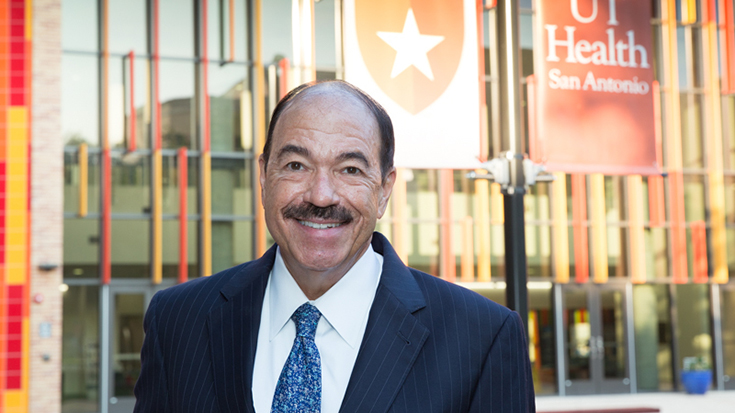COVID-19 highlights the expertise of respiratory therapists

By Kate Hunger
Respiratory therapists are crucial members of health care teams around the world treating patients with COVID-19.
Setting up, adjusting and monitoring patients needing ventilators takes specialized training, noted School of Health Professions Dean David Shelledy, Ph.D., RRT, FAARC, FASAHP.
Ventilators have become highly complex, a fact that is not broadly known, said Respiratory Care Program Director and Associate Professor Richard Wettstein, MMEd, RRT, FAARC.
“The only way to be able to apply this device safely to patients is really to understand the device, what the options are and how best to optimize them, and how we best synchronize the patient to reduce their need for time, sedation and paralytics on the ventilator to obtain the best outcomes,” Wettstein said. “To do that you need a respiratory therapist.”
Respiratory therapists not only understand how to operate the various modes on ventilators but also must possess the ability to make decisions quickly in a rapidly changing environment, said Director of Clinical Education and Assistant Professor Kristina Ramirez, MPH, RRT, CHES.
“It can go from patients having minimal to no symptoms to patients presenting with acute respiratory distress syndrome (ARDS) very quickly,” she said. “In that situation, decisions have to be made fast. Those who are taking care of these patients have to be very knowledgeable about mechanical ventilation in order to prevent these patients from declining very rapidly.”
Some parts of the country are experiencing a shortage of respiratory therapists, Wettstein noted. Although respiratory therapy is a fast-growing profession in the U.S., with a large number of therapists preparing to retire, it also isn’t well known.
“Many programs do not fill their enrollments because people don’t know about (respiratory care),” Wettstein said.
Ramirez said she has noticed an increase in the profession’s profile during the pandemic.
“Health care professions and people, in general, are starting to realize that RTs are the experts when it comes to mechanical ventilation,” she said.
In response to COVID-19, the Division of Respiratory Care has transitioned its curriculum online. Distance instruction has given students the opportunity to ask questions of respiratory therapists and physicians who are treating patients with COVID-19, said second-year master’s student Kathleen Floud, who said she plans to start practicing as soon as she can after graduation.
“It’s very fulfilling to me,” she said of respiratory care. “When patients can’t breathe, that becomes the priority over everything else.